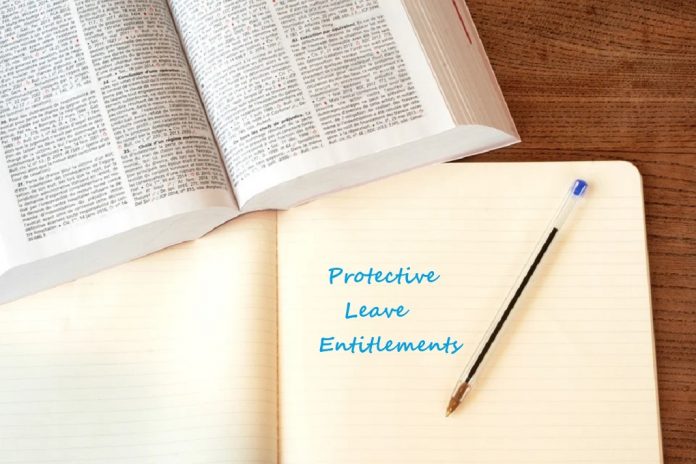by Jennifer Bassett, Associate, and Susan Battye, Partner, in the Walkers’ Global Employment Group
Employees are entitled to a variety of caring and family-related leave under Irish law.
This area of employment law has undergone significant change in recent years and is set to undergo further expansion in the near future.
These changes demonstrate an increasing emphasis on work-life balance and promotion of family-related leave for employees.
We have listed below the various types of leave available to employees and the key obligations for employers in relation to such leave.
Depending on their personal circumstances, employees may be entitled to the following types of protective leave:
» maternity leave;
» adoptive leave;
» paternity leave;
» parent’s leave;
» parental leave;
» force majeure leave; and
» carer’s leave.
Maternity Leave
Pregnant employees are entitled to 26 weeks’ maternity leave and sixteen weeks’ additional maternity leave from commencement of employment.
The Maternity Protection Acts 1994 and 2004 also entitle such employees to paid time off to receive antenatal and postnatal care and to attend one set of antenatal classes, except the last three classes of the set. An important obligation imposed by the Maternity Protection Acts 1994 and 2004 on employers is the requirement to carry out a specific
risk assessment to identify any particular risks that may affect the pregnant employee’s health and safety or that of the developing child. This risk assessment should be carried out as soon as possible after the employee informs the employer of their pregnancy, even if the employee is working remotely.
If the risk assessment identifies any risks, steps should be taken to remove them as far as possible. If the risks cannot be removed, the employee should be moved to another suitable role or location if appropriate. If solutions cannot be found to remove the employee from such risks, the employee must be placed on health and safety leave. The employer must pay the employee their normal wages during the first three weeks of health and safety leave. Thereafter, the employer may qualify for health and safety benefit from the Department of Social Protection.
Recent Changes to Family Leave
Recent changes have been made to adoptive leave, paternity leave, parent’s leave and parental leave.
Employee eligibility for adoptive leave has been broadened. Previously, only an adopting mother or sole male adopter was entitled to adoptive leave.
Adopting couples may now choose which parent will avail of adoptive leave.
Eligibility for paternity leave has expanded, so it is now consistent with the eligibility criteria for adoptive leave. Now the other parent in an adopting couple who does not avail of adoptive leave may avail of paternity leave in all circumstances.
The entitlement to parent’s leave for eligible employees has increased from two to five weeks. Employees can now take parent’s leave within the first 24 months of their child’s birth or placement for adoption, an increase from twelve months. Parent’s leave is scheduled to increase to seven weeks in August 2022 and to nine weeks from August 2024.
Parental leave has been increased to a total of 26 weeks for each child under 12.
Protective Leave
A key consideration for employers when dealing with employees on family and caring leave is that such leave is protective leave. Any purported termination of an employee’s employment while on protective leave is void.
Employers are required to treat employees on protective leave as though they are not absent from work and the employee’s absence on protective leave should not affect any of their rights or entitlements, except for their right to remuneration (with the exception of force majeure leave which is fully paid).
Right to Return Following Protective Leave
Employees have a right to return to the job they held immediately before the commencement of such leave under terms and conditions that are not less favourable and which incorporate any improvements to those terms and conditions which the employee would have been entitled to if not absent from work.
In cases of longer protective leave such as maternity, adoptive or parental leave, it may not be reasonably practicable for the employee to return to the same role they held before the protective leave commenced. This can occur where organisational or restructuring changes have occurred in the employer’s business or part of their business while the employee was absent.
In these circumstances, the employer is required to provide the employee with suitable and appropriate alternative work on terms no less favourable to the employee than the employee previously was entitled to prior to the protective leave.
To be considered suitable alternative work, the role must be suitable for the individual employee and appropriate for that employee to do in the circumstances. Disputes may arise if an employee does not consider the alternative employment to be suitable and appropriate. It is important to consider carefully whether the new functions and duties are of equal overall value and seniority before changing an employee’s role.
Key Tips for Employers
» employers should review their family leave policies to ensure that recent changes to adoptive leave, paternity leave, parent’s leave and parental leave have been incorporated;
» claims taken by employees relating to their family status or protective leave tend to attract relatively generous awards from the Workplace Relations Commission so care should be taken to ensure compliance;
» although there is no statutory right to receive salary during most protective leave, many employers provide for payment during certain leaves, particularly maternity, adoptive and paternity leave. Payment during protective leave is an increasingly attractive benefit for
retention and recruitment of employees. If providing for payment of salary during protective leave, the duration and percentage of payment should be specified. Policies can provide for any social protection benefits that employees may be entitled to receive to be
deducted from payment of salary while on protective leave; and
» the EU Directive on Work Life Balance is due to be implemented before August 2022 and will introduce a right to request flexible working arrangements for carers and working parents of children up to eight years old. Although this will not provide an automatic right to flexible working arrangements, this legislation is consistent with an increasing emphasis on work-life balance.
About the authors
Jennifer Bassett has experience assisting in the resolution of complex employment disputes including senior executive exits, employment injunctions, unfair dismissal claims, constructive dismissal claims, equality/discrimination claims, bullying and harassment claims, protected disclosure claims and trade disputes.
Jennifer has experience providing non-contentious advice to large domestic and international employers including in relation to restructuring the workforce, drafting senior executive employment contracts and policies for employee handbooks and assisting in the provision of employment law advices in commercial transactions.
Susan Battye is a partner and head of the employment practice.
Susan has over two decades’ experience advising employers on the full life cycle of employment. Her advisory experience includes: corporate restructuring and redundancies, employment support in M&A transactions, outsourcing and transfers of undertakings, secondment arrangements, executive remuneration requirements, harmonising employee benefits and entitlements, compliance projects, drafting employment contracts for regulated functions, grievance and disciplinary procedures, updating staff handbooks, HR policies and codes of conduct, hybrid and flexible arrangements, working time and right to disconnect projects, managing whistleblowing claims, internal investigations, and providing employment law training.
Susan has represented clients before the Workplace Relations Commission, including defending unfair dismissals, constructive dismissals, discrimination claims, whistleblowing and penalisation claims, workplace bullying and stress-related claims, industrial relations disputes and employment injunctions before the High Court. Susan also provides strategic advice on managing the legal, commercial and reputational risks of implementing senior executive terminations, severance negotiations, and drafting settlement agreements.









































